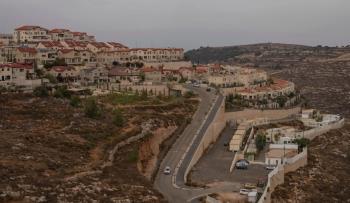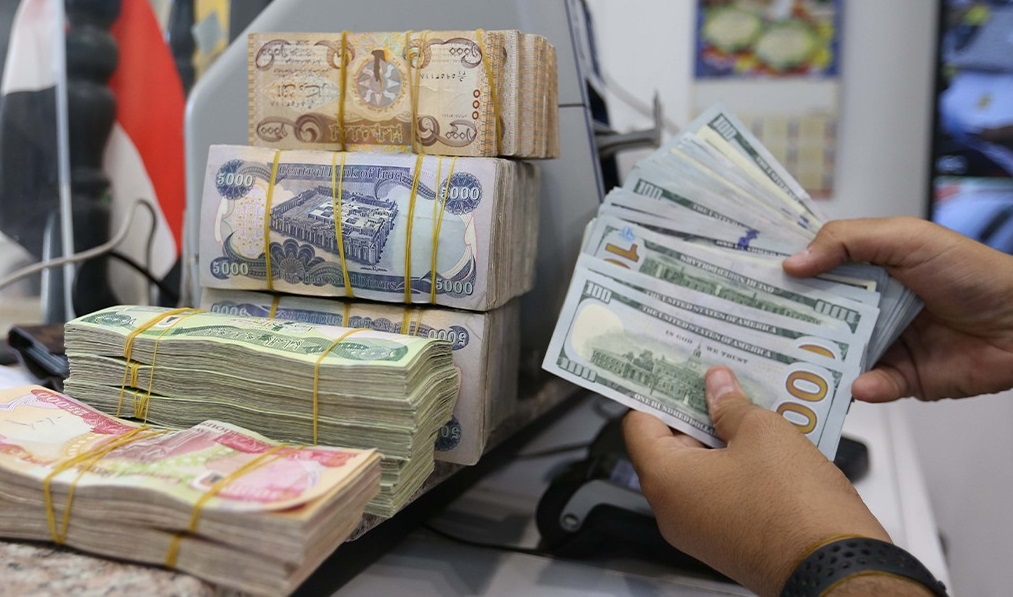Alwaght- Value of Iraq's national currency, dinar, slump against the US dollar triggering currency strains in the Arab country. The value loss has started about two weeks ago and dealing with its causes and impacts is turning into the main obsession of the Iraqi media and officials these days.
According to the Iraqi official news agency, a US dollar was sold for 1,580 Iraqi dinar, while the central bank of Iraq set the dollar exchange rate at 1,460 dinar.
The increase in the dollar rate, in turn, has forced up food prices, making experts warn about its inflationary effects on the country’s economy. Iraq’s economy relies on oil revenues and imports most of its consumer goods and this means that the Iraqis are completely dependent on dollar, as is the real estate market, as well as in automobile market.
Iraqi officials, however, assured that the dinar value loss is temporary, especially as the foreign currency reserves have hit record highs.
On Sunday, the prime minister’s financial advisor Madhar Saleh said that foreign currency reserves are currently “the strongest in Iraq’s financial history, and its balance may exceed $100 billion.”
Meanwhile, the central bank also announced on Tuesday that this increase in the dollar rate is due to “temporary pressures caused by internal and external factors due to the adoption of mechanisms to “immunize” the banking sector, customers and the financial system.
The Union of Iraqi Banks also announced in a statement that the increase in the US dollar rate is due to alteration of the currency sales mechanism in the central bank on the requirements of international transactions.
To check the increase, the government has taken some measures but they have so far proven unsuccessful, including facilitation of the financing of the private sector trade in dollar via Iraqi banks and opening dollar sales in the state banks to balance the supply and demand.
Also, on Monday, the central bank made a new decision that according to Article 16 of the Federal Budget Law, customs duties and taxes should not be received in advance.
These measures came after Prime Minister Mohammad Shia al-Sudani asked the central bank to take steps to sell currency to citizens at official rates.
According to the announcement of the prime minister’s office, al-Sudani, in a meeting with the Central Bank Governor Mustafa Ghalib Mukheef called for the activation of the process of foreign currency sales at official rates to citizens “through card purchases, opening sales centers for travelers or customers outside Iraq, or providing finances to foreign trade in accordance with the laws.”
Currency smuggling and US pressures
In the past days, there have been various analyses by Iraqi media and experts about the reasons behind the fluctuations in the Iraqi forex market. Member of parliament Ebtisam al-Hilali in a statement said that the dollar price is rising and it can hit 1,650 on the weekend or new near eve.
“Some banks and private traders, with the support of some political parties, after buying currency at official rates from central bank, smuggle it abroad. The main reason is the high rate of the dollar against the Iraqi dinar,” al-Hilali stated.
Currency smuggling has been one of the key pillars of financial corruption in Iraq over the past two decades. Various government have introduced measures to tackle it.
Suffering a lot from corruption and money laundering, Iraqi economy ranks 157 out of 180 in Transparency International’s Corruption Index.
In 2022, about $40 billion were smuggled out of Iraq as part of money laundering operations, Iraqi lawmaker Suran Omar said in a Twitter message, adding that in 2022 the central bank sold $49 billion, with $9 billion spent at home and $40 billion moved out of the country.
Last month, al-Sudani government disclosed a major financial corruption of $2.5 billion, labeled by Iraqi media the “heist of the century.” According to information provided by the Iraqi government, state and private banks had participated in this corruption.
Meanwhile, all the causes of Iraq’s currency crisis are not economically-rooted, and the disclosure of the US attempt to limit commercial and financial transactions between Iraq and Iran has also caused economic activists to worry about forex rates in the upcoming weeks.
The White House is seeking ways to impose conditions on Iraq and its banks to restrict trade and transactions with Iran to dinar.
Iraq deposits its oil revenues to the US Federal Reserve Bank of New York and the central bank of Iraq, through its account there, releases the remittance for the Iraqi Finance Ministry. This mechanism, active for years, has been target of criticism of Iraqi political parties, essentially the now majority-holding Shiite Coordination Framework (SCF) which calls for Iraqi government’s freedom from this restriction and foreign financial supervision. The significance of freedom from this American control would be understood further when amid intensifying competition between the US and China, and the regional tendency to expand partnership with Beijing, Washington will certainly use its controlling power over the Iraqi central bank to hamper China-Iraq partnership boost, as the White House has already had a role in the Iraqi currency crisis by sanctioning a number of Iraqi banks for facilitating transactions with Iran as Iraq’s biggest trade partner and the biggest power and gas supplier.
Meanwhile, Deputy Speaker of Iraqi Parliament Dorgham al-Maliki reported about measures including negotiations with the US side to sort up the dollar-based trade and adopting appropriate mechanisms in this area.
In his statement, al-Maliki added that “we should first organize ourselves from within, because Iraq is accused of being a country from which dollar is smuggled abroad. Negotiations with the American side are underway to adopt appropriate conditions for dealing which at the end of the road would lead to gradual downturn in the dollar rate.”



























